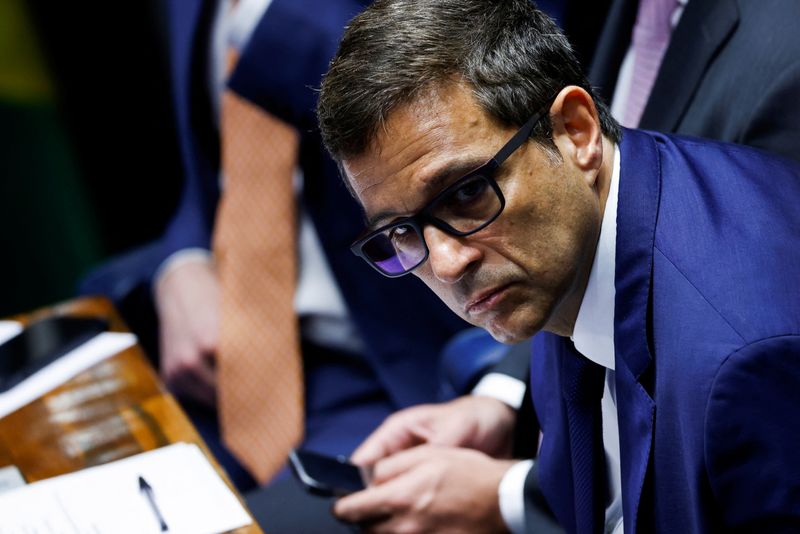Brazil yet to consolidate disinflation, central bank chief says
2023.05.17 10:19

© Reuters. FILE PHOTO: Brazil’s Central Bank President Roberto Campos Neto looks on during a session of the Brazilian Senate in Brasilia, Brazil February 15, 2023. REUTERS/Adriano Machado
BRASILIA (Reuters) – Brazil faces challenges in consolidating disinflation despite progress made so far, central bank chief Roberto Campos Neto said on Wednesday, again highlighting concerns with rising inflation expectations.
During his online participation in the bank’s annual conference, Campos Neto pointed out that inflation had dropped from 12.1% in April 2022 to 4.2% in the same month this year.
However, he emphasized that inflation expectations for 2023 have been steadily increasing and showing “some disanchoring” from the government’s official targets in 2024 and 2025.
“It is important to highlight that although we have made progress so far, we still face challenges in consolidating disinflation in Brazil,” he said, adding that anchoring inflation expectations was an “essential element.”
Campos Neto’s remarks come amid persistent criticism from President Luiz Inacio Lula da Silva on interest rates, which have remained at a cycle-high of 13.75% since September, and on current inflation targets, which he deems to be excessively low.
Private economists surveyed weekly by the central bank project inflation at 6.03% this year and 4.15% in 2024, against official targets of 3.25% and 3.0%, respectively.
Campos Neto said that decisions aimed at bolstering confidence in the inflation targets play a crucial role in expediting the disinflation process.
In June, the National Monetary Council will define the 2026 inflation target and confirm the goals for the previous years.
Campos Neto mentioned that the increase in inflation expectations is “partially related” to questions about changes in future inflation targets and uncertainties in domestic economic policy.
Although acknowledging that new fiscal rules presented by the government can be helpful, Campos Neto reiterated that there is no mechanical relationship between the new fiscal framework and interest rates.
“The convergence of inflation remains conditioned on other macroeconomic variables, such as the reaction of inflation expectations, public debt projections, and asset prices,” he said.








